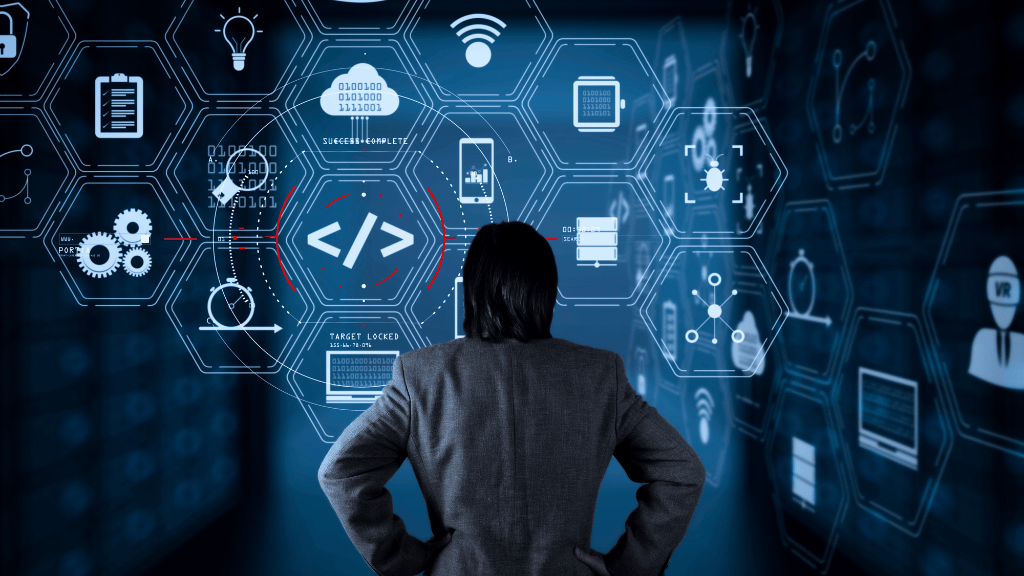Unlocking Business Value with AI in Human Resources

AI is changing HR, fast. What truly matters isn't its novelty. Time savings, cost reductions, and happy employees, that's the bottom line. Businesses are no longer experimenting. People want results now. Top companies report significant returns from AI-driven HR systems: lower ticket costs, faster answers, and higher engagement. But none of that happens by accident. Success hinges on a combination of insightful choices and robust data analysis; one without the other is insufficient. Numbers, tools, and real-world effects are all broken down for you in this article; a comprehensive look at the whole picture.
The value of AI HR assistants extends way beyond the reach and influence of new technology. Financial data shows these tools consistently deliver measurable returns across HR operations. Companies report a median ROI of 15% from AI investments in HR functions. Companies are adopting these solutions faster to gain substantial operational advantages.
1. Lower Cost Per HR Ticket
AI-powered HR support makes economic sense. Companies using AI assistants have cut their average HR ticket costs from $20 to under $2. This 90% reduction comes from ticket deflection - when employee requests get resolved without human help.
Good AI solutions handle 50-70% of HR requests automatically. Companies save about $40 in resources for each message their HR AI assistant processes. These savings add up quickly, especially in large companies that deal with thousands of tickets each year. The financial benefits go beyond ticket handling. Companies that use AI-powered HR tools see:
- 55% ROI in just 6 months
- 400% ROI within 24 months
- 93% of HR managers report substantial cost savings from AI
These impressive results explain why 76% of leaders want to invest more in AI. They see how it optimizes their operations.
2. Faster Resolution and Fewer Emails
AI HR assistants work exceptionally fast. They process as many questions in one hour as a human HR service desk handles in a week. This speed boost creates productivity gains across the organization.
Time savings show up in several ways:
- HR professionals gain 1.5+ days weekly by avoiding routine questions
- Answers come in minutes instead of days
- Employees get instant responses without waiting in email queues
HR staff can focus on strategic work instead of administrative tasks. McKinsey's research shows AI helps HR professionals cut 60-70% of their administrative work. This change lets HR teams spend more time on crucial person-to-person interactions that boost organizational success.
3. Higher Employee Engagement

AI HR assistants make employees' lives better. Research shows these AI-powered systems consistently score 9+/10 in satisfaction compared to regular ticketing systems. This improved satisfaction comes from several benefits: Employees typically waste 1.8 hours daily looking for information. AI assistants provide quick answers about benefits, policies, and procedures.
The system works 24/7, so employees get help whatever their time zone or schedule. Global organizations and remote workers benefit from this round-the-clock support. Responses adapt to each employee's situation. AI systems adjust organizational messages based on employee priorities and behaviour patterns. This makes communication more effective and relevant.
These improvements create a more engaged workforce. One HR leader put it well: "AI isn't replacing humans, it's giving them the ability to do more". It creates smoother experiences and removes frustrating administrative tasks. Better engagement leads to improved productivity, higher retention, and better organizational results.
How to Choose the Right AI HR Software
Your organization needs the right AI HR assistant that matches your specific requirements. Research shows 99% of decision-makers see business benefits from AI investments. The main advantages include better decision-making (41%), automated business processes (35%), and improved employee retention/experience (32%).
1. Assess Your HR Needs
A detailed look at your internal processes will reveal the biggest bottlenecks in your HR workflow. Each department might need different AI tools. Your hiring teams could benefit from advanced resume screening, while retention-focused teams might need workforce analytics tools more. Your AI implementation should have clear, measurable goals such as:
- Reducing time-to-hire by a specific percentage
- Improving employee satisfaction scores
- Increasing retention rates through better support
Your HR data landscape needs a review to spot gaps, inconsistencies, or quality issues that could affect AI performance. AI tools rely heavily on data quality, so you need resilient data governance practices before implementation.
2. Compare Features and Integrations

Your AI HR software should merge naturally with your current systems. The best solutions connect with your existing HRIS, payroll systems, and communication platforms. This maintains data consistency and prevents information silos. Essential features to review include:
- Predictive analytics that show workforce trends and help with data-informed decisions
- Conversational AI that understands context, nuances, and complex language patterns
- Security compliance with standards like GDPR, SOC 2, or ISO 27001
- Customization options that adapt to your organization's unique needs
Your chosen AI solution should access immediate data across multiple systems. The best AI HR assistants use "an extensive catalogue of prebuilt tools connected to common enterprise applications that HR teams already use".
3. Evaluate Scalability and Ease of Use
An easy-to-use interface matters as much as advanced features. HR team members should find the software easy to use, whatever their technical expertise. Complex tools often see low adoption rates and fail to deliver results.
The tool should grow with your organization. A good solution handles more workforce data and expanding teams without major changes. This future-proofing keeps your investment valuable as your company grows. Global enterprises need multilingual support and regional compliance features. Modern AI HR assistants provide "location-aware responses that acknowledge specific policies and regulations applicable to an employee's region".
The vendor's training resources and support options need careful review. Support teams and detailed onboarding resources help speed up adoption rates and boost return on investment substantially. A demo or trial period helps test the tool with your workflows before making your final choice.
Conclusion
AI in HR isn't theoretical. The returns are real, if you choose the right system and prepare properly. High-impact tools reduce costs, speed up support, and improve the employee experience. But not every solution fits every team. Rushing the decision or skipping the groundwork leads to poor adoption and lost value. Review your data. Test the interface. Ask tough questions before buying. If your AI HR assistant can scale, integrate, and respond well across channels, the benefits will follow. It’s not about adopting AI. It’s about choosing what actually works, and walking away from what doesn’t.




